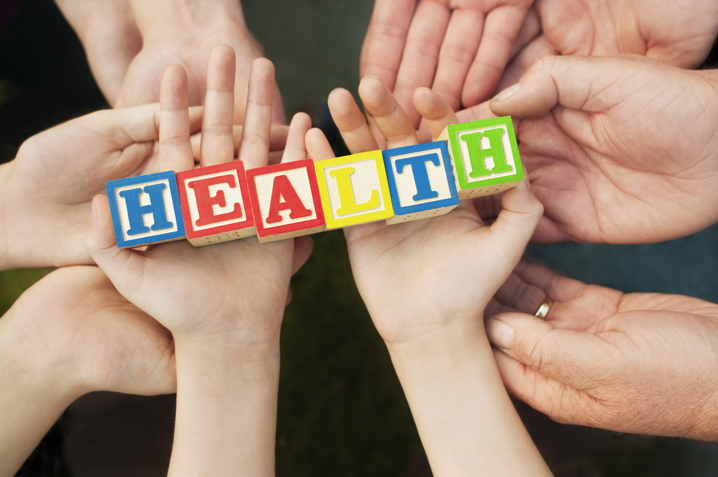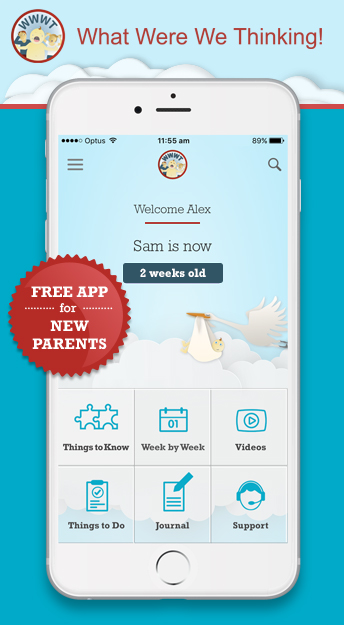What does a "preventative health approach" actually mean?
By Heather Rowe

Dr. Heather Rowe explains what "preventative health" means and how WWWT can support your mental and emotional wellbing.
Q. What influences emotional and mental health?
A. Emotional and mental health is influenced by many things: respectful relationships; feeling valued for who we are and what we do; and freedom from violence and discrimination are fundamental to our emotional health. When you experience life’s challenges - such as an injury, losing a job, moving house or (more seriously) the death of a loved one - having support from the people you are close to can make a big difference to how well you cope with your changing circumstances. Talking to someone you trust - someone who will listen without judgement or criticism - can protect your emotional wellbeing when we are feeling vulnerable.
Q. What about new parents?
A. Most new parents don’t need reminding that the birth of their first baby is one of life’s biggest challenges! Overnight you can lose your identity and (at least for a time) the freedom to come and go as you please, your income, and your connection to your friends and workmates. A baby is a wondrous reward but caring for a baby requires new skills and knowledge that have to be learnt on the job, often when you are tired and still recovering from the birth. These are big adjustments. Your emotional and mental health can be protected by your close relationships and if you feel valued for the huge amount of work that it takes to look after a new baby. Not criticizing each other, especially when you are looking after your baby, and dividing the household work in ways that seem fair are really important.
Q. How does WWWT support the mental and emotional health of new parents?
A. What Were We Thinking (WWWT) is a program for parents who have just had their first baby. It helps mothers and fathers to adjust by giving them new ways to understand and communicate with each other about their changed circumstances and how to care for their baby. It focuses on two key aspects of the experience: skills for relating to each other without criticism and sharing the increased household workload that a baby bring; and skills to create patterns of daily care that help the baby and the parents to have enough sleep. Together these two aspects are known to improve parents’ adjustment and their emotional wellbeing. WWWT is a preventative health program.
Q. What does “a preventative health approach” mean?
A. The WWWT ideas might sound quite abstract, but they are actually very practical tools. All new parents have learning needs and all the ‘Parent’ and ‘Baby’ skills in WWWT can be learned. They are not instinctive abilities that automatically appear when the baby arrives, rather skills that everyone can learn. WWWT is designed to help mothers and fathers learn these new skills to protect their emotional health and prevent mental health problems occurring. We call this a “preventive health approach”. During pregnancy it can be difficult to plan for life with the baby because your attention is focussed on labour and birth. The skills and ideas in WWWT are for when parents you need them most: when your baby is in your arms.
Q. How does the WWWT blog help to support new parents?
A. WWWT has many different formats meaning that it can be used by a range of different parents: some parents receive the program face-to-face in their new parents group, others may access the WWWT website which has interactive worksheets available to anyone who has a computer or tablet device. The WWWT iPhone app is soon to be released which will put all the WWWT teachings in the palm of your hand. The WWWT blog enables parents to lean the WWWT skills by interacting with each other and health professionals online. Parenting a new baby can be quite isolating so sharing experiences with other parents and parenting experts online can increase feelings of connectedness and emotional support. Many people who participate in health blogs say that hearing the experiences of other parents helped them to feel less alone, to learn new experiences and know that their experiences are normal. The WWWT blog is intended to promote discussion among parents and health professionals so that bloggers and readers learn WWWT skills together. Leaning the skills when you need them most and putting them into practice in your daily life can protect your emotional wellbeing.
Posted in: Baby 0-4 weeks Baby 13-16 weeks Baby 17-20 weeks Baby 21-26 weeks Baby 5-8 weeks Baby 9-12 weeks Late pregnancy








